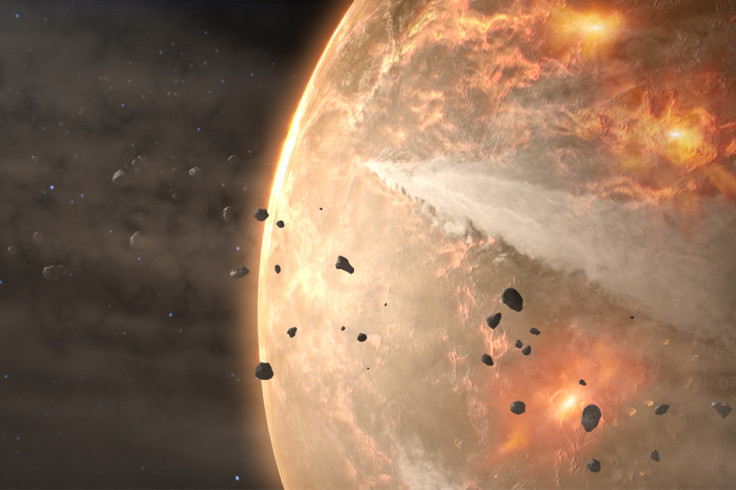Thousands of impacts by space rock 'drove away early earth atmosphere'

Instead of one big massive impact that drove away the primordial earth's atmosphere, researchers are now suggesting that thousands of smaller impacts from space rocks or 'planetesimals' did the job.
The earth is believed to have seen at least two such wiping out of its atmosphere since it was formed more than 4 billion years ago. But theories so far have only looked at massive impacts by massive objects.
Researchers at MIT, Hebrew University, and Caltech calculated the impact on the atmosphere under various scenarios and zeroed in on the most likely one as caused by a relentless blitz of small space rocks bombarding the earth around the time the moon was formed.
The clouds of gas generated would have enough force to permanently eject small portions of the atmosphere into space. Taken together with thousands of such small impacts, the researchers calculated they could efficiently jettison earth's entire primordial atmosphere.
Hilke Schlichting, an assistant professor in MIT's Department of Earth, Atmospheric and Planetary Sciences, says understanding the drivers of earth's ancient atmosphere may help scientists to identify the early planetary conditions that encouraged life to form.
While a giant impact by a body as massive as the earth itself could generate a shock wave that could disperse most of the atmosphere, such an impact cannot explain the diversity of noble gases like helium in the earth's core.
The wave would melt everything on the planet into homogenous slurry.
The smaller impactors, measuring 25 kms or lesser, could generate explosions that drive away parts of the atmosphere, and when taken together with many such, account for the total loss of the atmosphere.
This was a time when thousands of space rocks whirled around the solar system, colliding to form the planets, the moon, and other bodies.
Venus-Earth anomaly
However, there was a problem in explaining how Venus and earth were affected differently by this early blitzkrieg. Compared with Venus, earth's noble gas budget in the atmosphere has been depleted 100-fold. How was Venus spared when earth was not?
To accommodate that, the team assumed that Venus began with a slightly more massive atmosphere than earth. Once the first half of the earth's atmosphere was eroded, the impactors made mincemeat of the remaining.
The impactors not only eroded the atmosphere but probably also replaced it with volatile gases when they melted on impact.
The calculation on the amount of volatiles released by a rock of a given composition and mass showed that a significant portion of the atmosphere may have been replenished by the impact of tens of thousands of space rocks.
The team next hopes to find what the most likely composition of the primordial atmosphere was.
Schlichting and her colleagues have published their results in the journal Icarus.
© Copyright IBTimes 2025. All rights reserved.





















